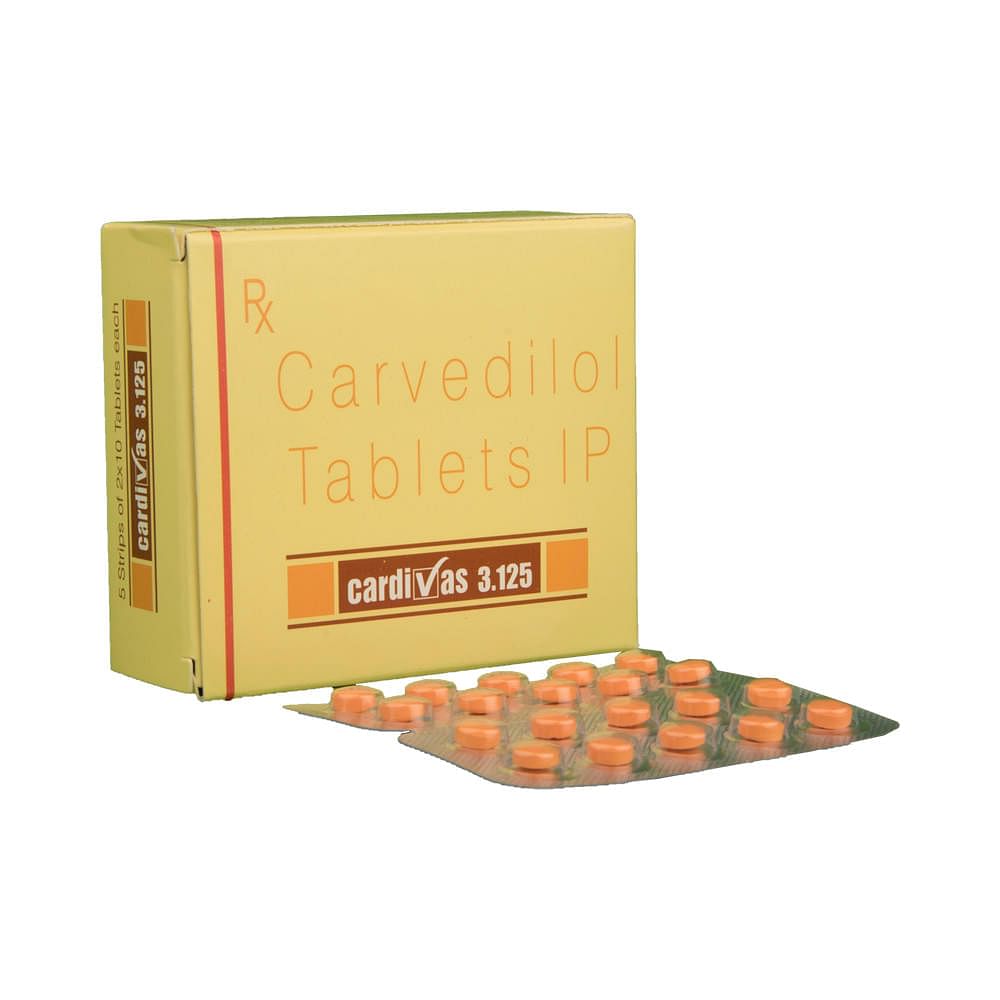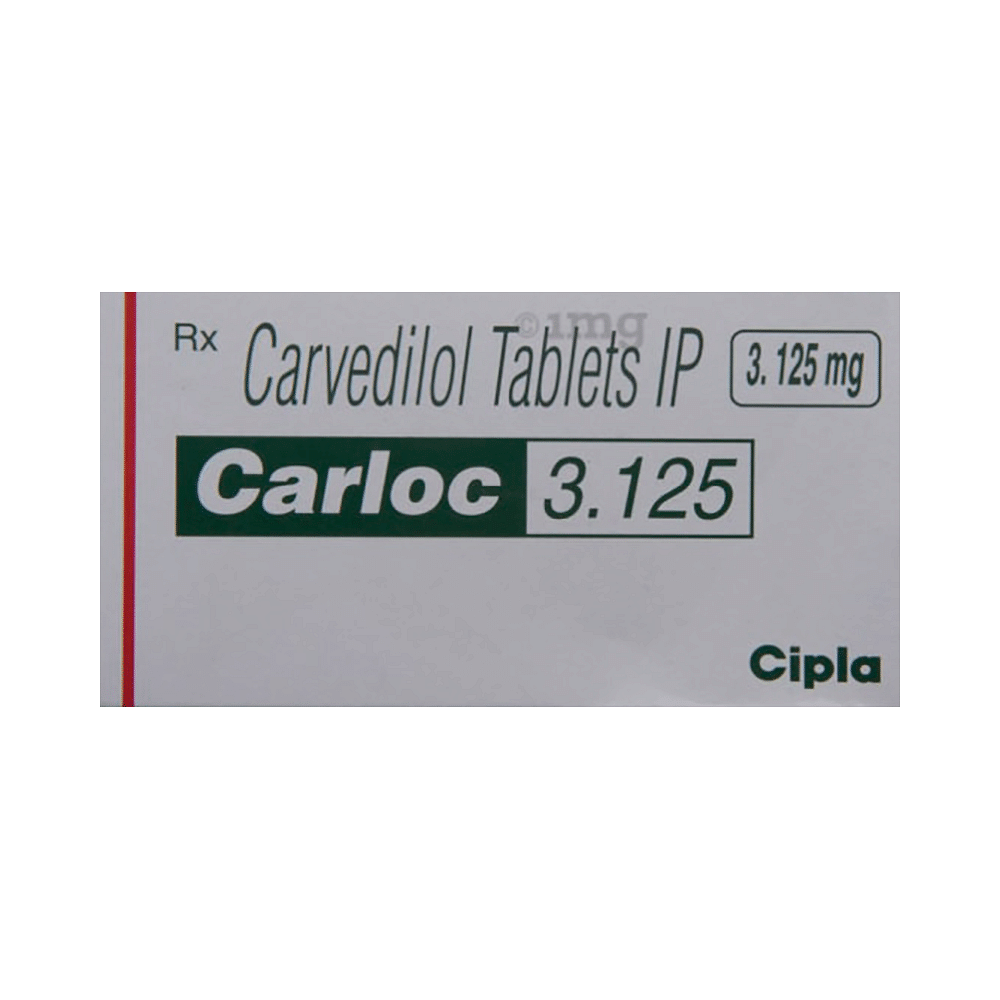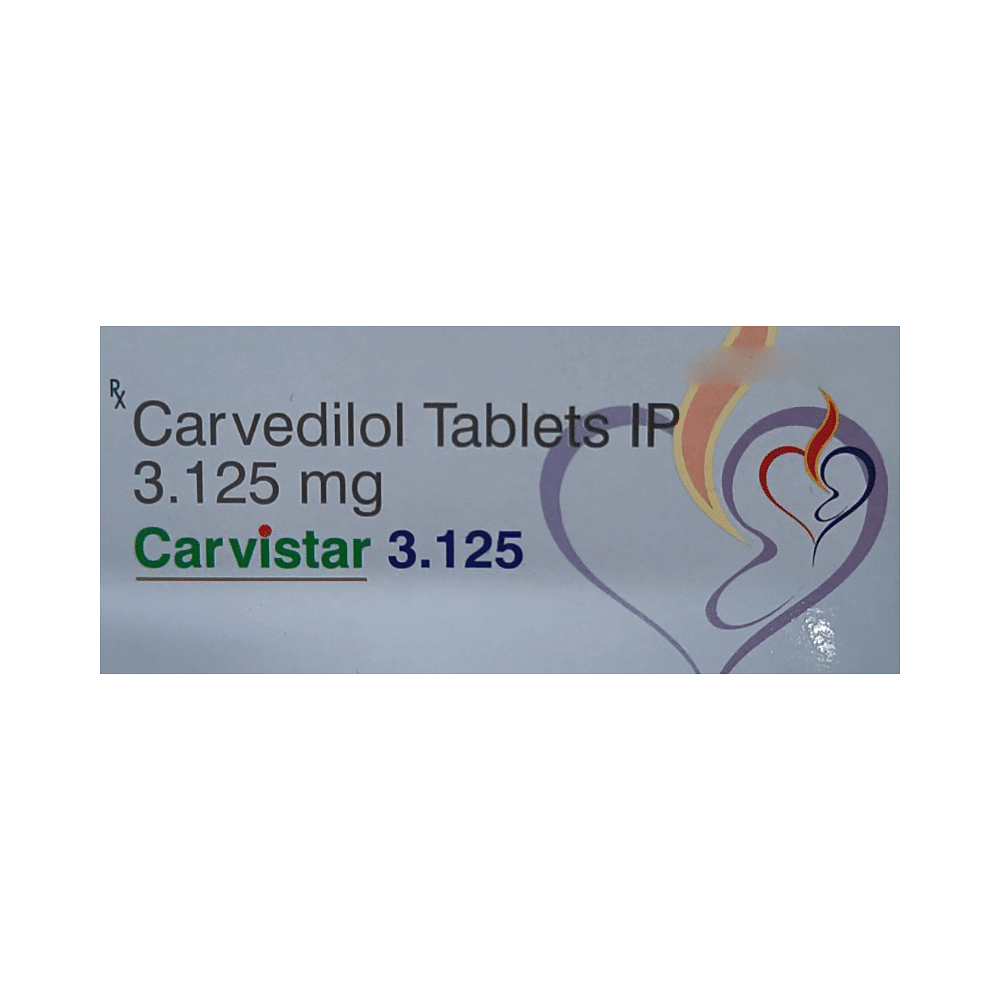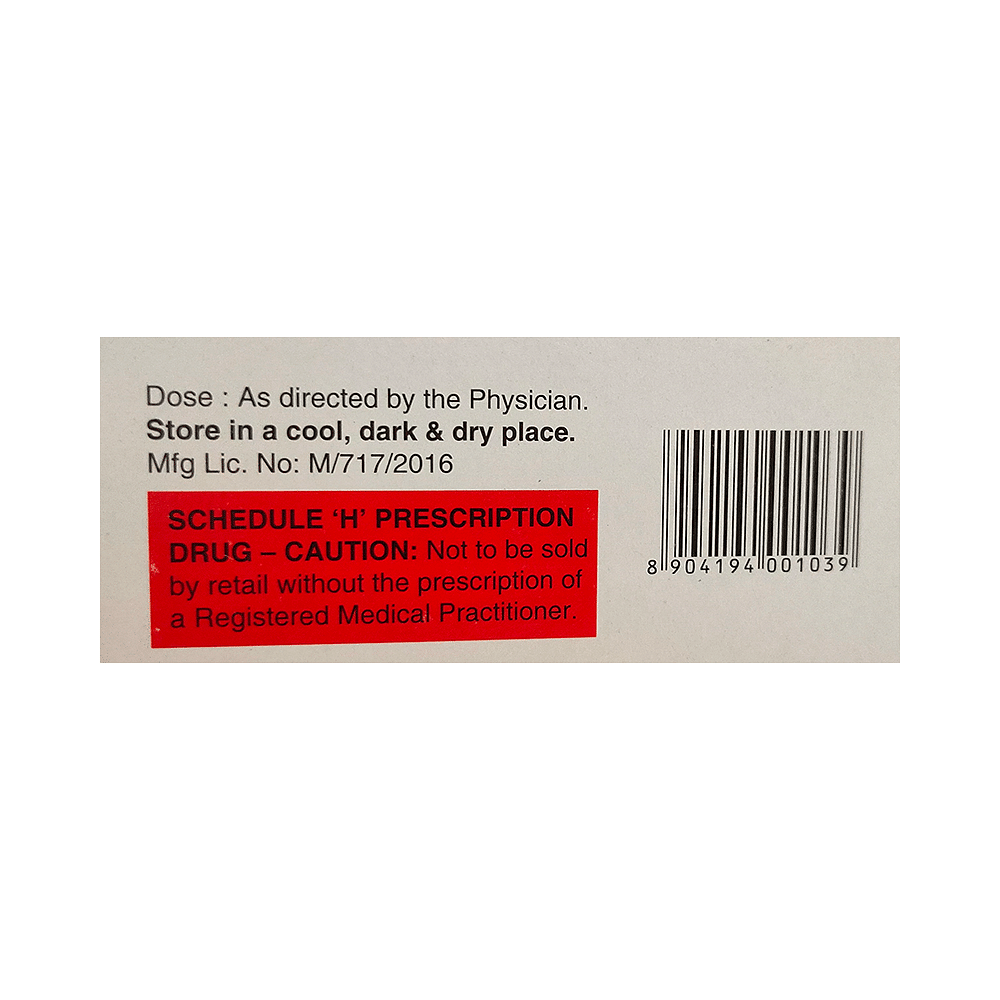
Carvibeta 3.125 Tablet
Manufacturer
Shrrishti Health Care Products Pvt Ltd
Salt Composition
Carvedilol (3.125mg)
Key Information
Short Description
Carvibeta 3.125 Tablet is a medicine used to treat high blood pressure, heart-related chest pain (angina), and heart failure.
Dosage Form
Tablet
Introduction
Carvibeta 3.125 Tablet should be taken with food. You should take it in the dose and duration as advised by the doctor. It is important to take it even if you feel well or if your blood pressure is controlled. Do not stop this medicine without talking to the doctor as your condition could get worse. Making some changes in your lifestyle will help in improving your condition. These may include regular exercise, losing weight, smoking cessation, reducing alcohol intake, and reducing the amount of salt in your diet as advised by your doctor. This medicine is tolerated well by most patients but it may have a few side effects. These include dizziness, headache, breathlessness, and tiredness. Let your doctor know if these side effects bother you or do not go away. Before taking this medicine, let your doctor know if you have any heart or kidney diseases. Pregnant or breastfeeding mothers should also consult their doctor before taking this medicine.
Directions for Use
Take this medicine in the dose and duration as advised by your doctor. Swallow it as a whole. Do not chew, crush or break it. Carvibeta 3.125 Tablet is to be taken with food.
How it works
Carvibeta 3.125 Tablet is an alpha and beta blocker. It works by slowing down the heart rate and relaxing blood vessels which makes the heart more efficient at pumping blood around the body.
Quick Tips
Take it with food. Check your blood pressure 1 week after starting Carvibeta 3.125 Tablet and inform your doctor if it has not improved. Do not drive or do anything requiring concentration until you know how it affects you. Carvibeta 3.125 Tablet may cause dizziness or sleepiness. Do not stop taking Carvibeta 3.125 Tablet suddenly as it can cause your blood pressure to rise suddenly thereby increasing the risk of heart attack and stroke.
Related Medicines

Cardivas 3.125 Tablet

Carloc 3.125 Tablet

Carvistar 3.125 Tablet

Carca-3.125 Tablet

Carveday 3.125mg Tablet

Carvefine 3.125mg Tablet

Carvdol 3.125mg Tablet

Carvicard 3.125mg Tablet

Carbee 3.125mg Tablet

Cardifine 3.125mg Tablet
Frequently asked questions
What happens when you stop taking Carvibeta 3.125 Tablet?
Carvibeta 3.125 Tablet should be taken regularly as directed by your doctor. Stopping it suddenly may cause chest pain or heart attack. Your doctor may slowly lower your dose over a period of time before stopping it completely if required.
Does Carvibeta 3.125 Tablet make you tired?
Yes, Carvibeta 3.125 Tablet can cause tiredness and dizziness. These may occur initially when you start the treatment or when the dose is increased. If you experience these symptoms, you should not drive or operate machinery.
Can Carvibeta 3.125 Tablet cause weight gain?
Yes, weight gain is a common side effect of Carvibeta 3.125 Tablet, but it does not occur in everyone. If you are taking Carvibeta 3.125 Tablet for heart failure, tell your doctor if you gain weight or have trouble breathing, as this may be a sign of fluid retention.
Can Carvibeta 3.125 Tablet cause kidney failure?
The use of Carvibeta 3.125 Tablet in patients with heart failure can rarely lead to deterioration of kidney function. However, Carvibeta 3.125 Tablet may increase the risk of kidney failure in patients with low blood pressure (systolic blood pressure less than 100 mm Hg), those with hardening of the arteries and/or heart disease, or already have impaired kidney function. These patients should be closely monitored during treatment with Carvibeta 3.125 Tablet. Although kidney functions return to baseline when Carvibeta 3.125 Tablet is stopped.
Can a diabetic patient take Carvibeta 3.125 Tablet?
Yes, a diabetic patient can take Carvibeta 3.125 Tablet, provided there is regular check on blood glucose levels. It has been noted that in well-controlled diabetes mellitus with mild to moderate hypertension, Carvibeta 3.125 Tablet did not have any effect on blood glucose levels. However, it is important to know that using Carvibeta 3.125 Tablet class of medicines (beta-blockers) may hide the symptoms of hypoglycemia (decrease in glucose levels), especially an increase in heartbeat or palpitations. In addition to that, Carvibeta 3.125 Tablet may cause worsening of hyperglycemia (increase in blood glucose levels) in patients with heart failure and diabetes. Hence, it is recommended that blood glucose should be monitored while initiating, adjusting, or discontinuing the dose of Carvibeta 3.125 Tablet. Inform the doctor if there is any change in blood glucose levels during Carvibeta 3.125 Tablet therapy.
Can I take Carvibeta 3.125 Tablet empty stomach?
It is recommended that you take Carvibeta 3.125 Tablet with food, as food decreases the rate at which the medicine gets absorbed by the body. This will help to reduce the chances of orthostatic hypotension (low blood pressure which may cause dizziness or fainting when you stand up).
What are the serious side effects of Carvibeta 3.125 Tablet?
Carvibeta 3.125 Tablet can cause serious side effects such as fainting, shortness of breath, weight gain, swelling of the arms, hands, feet, ankles, or lower legs. Some may also experience chest pain, dizziness, difficulty breathing, vomiting, and loss of consciousness or seizures. Contact your doctor and seek immediate medical help in a nearby hospital.
Who should not take Carvibeta 3.125 Tablet?
Carvibeta 3.125 Tablet should be avoided if the patient has severe heart failure and is hospitalized in the intensive care unit or requires certain intravenous medications that help support circulation (inotropic medications). In addition to that, Carvibeta 3.125 Tablet should be avoided in patients who are prone to asthma or other breathing problems, have a slow heartbeat or irregular heartbeat, have liver problems, and are allergic to Carvibeta 3.125 Tablet.


